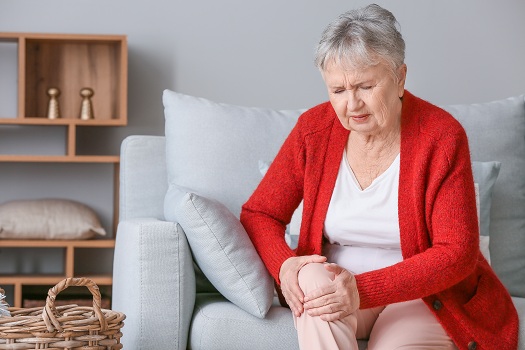Pain isn’t a normal part of life for the elderly. Often, if the pain isn’t chronic, it can be caused by other physical issues or illnesses. If you have an aging parent who is experiencing intense pain, the first step to figuring out how to treat and manage it is having a doctor examine him or her. Use the following step-by-step guide to help you better understand senior pain issues and how to effectively manage them.
The Difference Between Acute Pain and Chronic Pain
Acute pain is caused by an underlying injury and normally goes away as the body heals. If the pain continues untreated for an extended time, it may turn into chronic pain. Chronic pain is defined as pain that continues or grows worse over the course of several months or years, and it’s often caused by arthritis, cancer, back problems, and nerve issues.
Seniors can face a variety of challenges as they age, many of which can be mitigated with the help of professional in-home caregivers who provide high-quality home care. Anchorage families trust Home Care Assistance to help their elderly loved ones age in place safely and comfortably.
Diagnosis
A proper diagnosis will determine the necessary course of action for someone with extensive pain issues. The first step is an extensive physical examination. This examination can be performed at home by yourself or another family member before you head to the doctor’s office. This involves gently pressing against different parts of your loved one’s body to determine where the pain is occurring. A doctor will be able to run more in-depth tests, such as stimulation and imaging tests. Stimulation tests normally include an electromyography, evoked potential examinations, and nerve conduction tests. The doctor will be able to tell which muscles or nerves have been affected. Standard imaging tests include x-rays and MRI, both of which can tell the physician if your mother or father has experienced any type of injury.
Treatment
Once a diagnosis has been confirmed, the physician will propose multiple treatment options. Some of the options may include:
- Medicine – A variety of medicine is available to treat chronic pain, including muscle relaxers, acetaminophen, and steroids. Each type of medicine may be prescribed depending on the root cause for your loved one’s pain. You should always carefully follow dosage instructions the doctor gives.
- Devices for walking – If walking or other similar physical activity is the main cause of pain, it might be best to purchase devices that can assist with mobility, such as canes or walkers. Doing so can relieve the stress put on the joints and muscles.
- Physical therapy – Therapy is an excellent way to reduce pain. Taking your parent to a therapist at least once a week can ease the long-term pain with special exercises.
Once you have a treatment plan in hand, make sure your parent is taking medicine on a regular basis. Assist him or her as much as possible with moving around the house and taking short walks outside, if possible. If you’re unable to care for your loved one, seek help from a local home care agency.
One of the most challenging tasks of helping an elderly relative age in place safely and comfortably is researching agencies that provide homecare. Turn to Home Care Assistance for reliable, high-quality in-home care for aging adults. We offer 24-hour live-in care for seniors who require extensive assistance, and we also offer respite care for family caregivers who need a break from their caregiving duties.
Checkups
Take your loved one to monthly checkups with the doctor. The doctor will determine if the pain is progressing or decreasing and can adjust the medicine dosage accordingly or discuss alternative methods of treatment with you.
Some families may not have the time in their schedule to help their elderly loved ones manage pain and attend medical appointments. If you’re the primary caregiver for a senior family member and you need respite care, Anchorage, AK, Home Care Assistance is here to help. Our respite caregivers are trained to assist older adults with a wide variety of everyday tasks, including meal prep, physical activity, and personal hygiene. We also provide 24-hour care and specialized care for seniors with Alzheimer’s, dementia, and Parkinson’s. To speak with one of our friendly Care Managers and schedule a free consultation, call (907) 770-0907 today.
